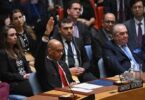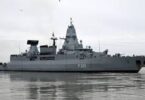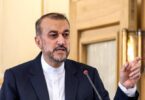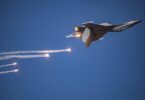F.P. Report
WASHINGTON: Indonesian Defense Minister Prabowo Subianto and Secretary of Defense Lloyd J. Austin III met in Jakarta today and pledged to improve interoperability between the Indonesian and U.S. militaries.
This was the fourth visit between the two defense leaders and Prabowo said Austin’s visit “is very important as a symbol of friendship, cooperation, partnership between the United States and Indonesia.”
Both defense leaders spoke of the long association between the two large democracies. Prabowo told Austin he was very comfortable with working with the U.S. military. For decades, Indonesian and U.S. service members have worked together “in many aspects of operations, in training and education, in military weapons, in joint exercises, in intensive and extensive exchanges of experts, and also in high-level meetings between our defense officials,” he said.
Prabowo said the Indonesian government is on the verge of making a decision about buying F-15 jets from Boeing. Austin said the acquisition would increase interoperability.
Prabowo also said the Indonesian government supports continued U.S. presence in the Indo-Pacific. “The United States has always been a good friend to us in our times of needs,” he said. “We thank, again, the United States government for the great assistance given to us during the pandemic, COVID 19.”
Prabowo also said he supports the U.S. effort to recover the remains of U.S. sailors, soldiers and airmen in Indonesian territory. “We promise to expedite this to conclude with all of the relevant requirements, and we will support this because this is, I think, very honorable and it is a sacred duty with any country to bring back their fallen heroes,” he said.
During a news conference following the meeting, Austin said that the frequency of the discussions between Indonesia and the United States “only underscores the importance of our partnership. U.S. friendship with Indonesia stretches back more than 70 years. And the scope and scale of our defense cooperation only continues to grow, spurred both by our converging security interests and by our commitment to shared principles.”
The secretary thanked Indonesia for their principled vote in the United Nations condemning the Russian invasion of Ukraine. “It’s especially vital now that like-minded countries come together to uphold our shared principles — including the rule of law, freedom of the seas, and respect for sovereignty and territorial integrity,” he said.
The votes condemning Russia point to the leadership role the nation plays in the Indo-Pacific and globally. “The United States is proud to partner with you as we work together to advance our shared vision of a free and open Indo-Pacific,” Austin said.
The secretary said the U.S. and Indonesia will exercise together more. “We’re continuing to expand the scope and complexity of our engagements,” he said. “Earlier this year, Indonesia hosted a super Garuda Shield, with more than 4,000 combined forces from 14 countries… making it one of the largest multinational exercises in the region.”
The two countries will also expand opportunities for service members to study together. Prabowo noted that Indonesian cadets and midshipmen are now at the U.S. military academies.
Austin noted that since 1970 more than 7,000 Indonesian military and civilian personnel have been educated in the United States. “We’ve provided more than $130 million in training and education funds to Indonesian students,” he said. “Our own defense leaders have also benefited from Indonesia’s outstanding institutions. More than 100 American military officers have been educated here.”
“We plan to fund new education and networking opportunities for emerging civilian defense leaders — increased English language training and professional military education — and new institutional capacity building engagements,” the secretary said. “Our investments in the next generation of leaders will help ensure that our shared vision of a secure, open and prosperous region thrives in the decades ahead.”






